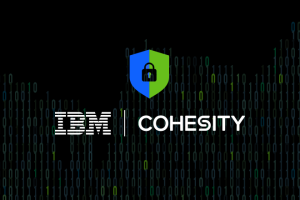Fortinet, a global cybersecurity company, has collaborated with IDC to release a report on the current state of cybersecurity in the Asia-Pacific region, with a focus on Singapore. The study highlights the prevalent cyber threats, challenges faced by Security Operations (SecOps) teams, and the impact of Artificial Intelligence (AI) and automation on security practices.
The report identifies phishing and ransomware as the primary cyber threats in Singapore, with over 50% of organizations ranking them as top concerns. Additionally, unpatched vulnerabilities, identity theft, and insider threats are key security challenges, with ransomware incidents doubling in the city-state over the past year.
The shift to remote work has contributed to a heightened concern about insider threats, as indicated by 82% of respondents. Factors such as insufficient training, lack of employee care, and inadequate communication are cited as contributors to the rise in insider threat incidents, emphasizing the need to address human factors in cybersecurity.
However, only 44% of businesses report having dedicated IT resources for security, posing additional challenges for organizations striving to enhance their security measures. The adoption of cloud technology introduces considerable challenges, potentially increasing an organization’s vulnerability to cyber threats.
Concerns about being inadequately prepared for threat containment are expressed by 44% of surveyed organizations. Alarmingly, three out of four organizations do not conduct regular risk assessments, complicating the timely detection of threats. More than 50% of enterprises are grappling with alert fatigue, with suspicious emails and malware detections causing the majority of alerts.
On average, there is only one SecOps professional for every 190 employees, managing approximately 30 alerts daily. This workload underscores the significant pressure on cybersecurity professionals, highlighting the necessity for efficient processes, automation, and prioritization.
The report reveals a notable interest in the adoption and untapped potential of automation in SecOps. While 80% of organizations have adopted automation and orchestration tools, the full potential of these technologies is yet to be fully harnessed. Around 80% of respondents report significant productivity gains, with at least a 25% improvement in incident detection times attributed to automation.
Looking ahead, 90% of organizations in Singapore express their intent to implement automation and orchestration tools within the next 12 months. Simon Piff, Research Vice-President at IDC Asia-Pacific, emphasizes the importance of organizations embracing automation strategically in securing modern IT infrastructures amid challenges posed by hybrid work, AI, and cloud technologies.
Rashish Pandey, Vice President, Marketing & Communications, Asia and ANZ, Fortinet, underscores the vital role of automation in promptly identifying and responding to cyber threats. He highlights Fortinet’s commitment to empowering organizations in navigating the dynamic cybersecurity landscape through innovative solutions, citing significant improvements in detection and containment times, team productivity, and reduction in expected breach costs.






















